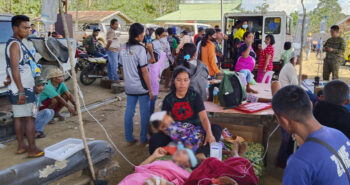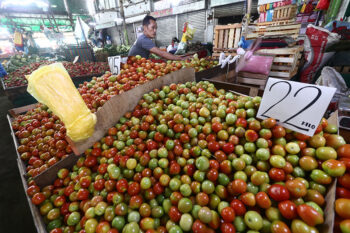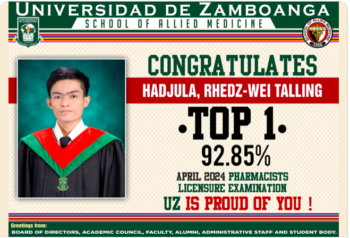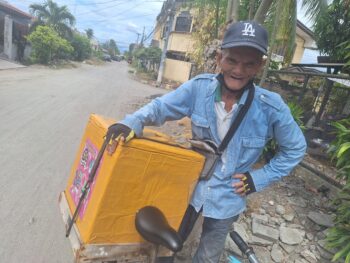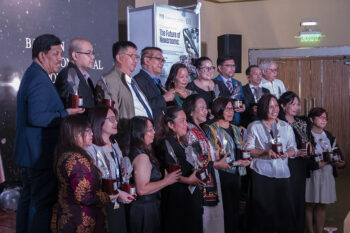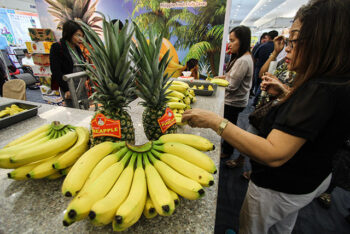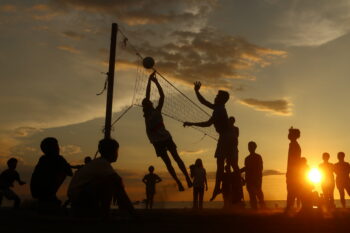(Inspirational Message delivered by Marites Gonzalo to the Mindanao Peacebuilding Institute’s Asia Opening Ceremony, on the theme “Positive Engagement in Peacebuilding” at the Mergrande Ocean Resort in Talomo, Davao City on May 20, 2019).
Let me start by greeting you all Madyaw na maselem! That’s good morning in our Tagakolu language. Maayong buntag sa tanan!
Today is the beginning of our second week of courses that are anchored on thematic approaches to creating and strengthening a culture of peace. This is in line with the theme of this year’s training of working toward “Positive Engagement in Peacebuilding.” We are invited to look into our very own practices at this annual training vis-à-vis our curriculum design, dynamics, and, most especially, our engagements in our respective communities and countries.
I am nervous right now standing before you. I feel so tiny being a neophyte in peacebuilding. When Chris invited me to become part of MPI’s board in 2016, I was hesitant to accept because I did not have that much experience in peacebuilding. After some deep thought, I eventually accepted. It is a formidable challenge for me knowing that I have much to learn. I do not have extensive experience in peacebuilding work in an institution or in an NGO. However, I have my experience with my own Tagakolu indigenous community. This, I think, will be a significant contribution to our peacebuilding efforts and advocacies. Coming from a lumad or indigenous peoples’ perspective, I believe that peace begins with oneself. Meaning, you bring peace with you, you live it… it is a way of life!
Let me share with you a very personal story. When I was in secondary school, I had an experience that damaged my self-image as a Tagakolu youth. I was bullied at school and was made fun of because my accent was different from that of my settler schoolmates. I, together with my dorm mates who were also indigenous peoples, were labeled as taga bukid or backward. We were considered ignorant and uncivilized. We were often ridiculed due to our way of dressing and manner of walking. We were out of fashion in the eyes of those who lived in the plains, the majority of whom were settlers. Whenever we were asked to perform our traditional dances at school or in huge gatherings, I dreaded taking part in them and would cry in silence. I knew that the moment my schoolmates would see me and my fellow lumad students dancing, they would most certainly mock us.
I remember one incident: during the annual festival of our town in 1995, the most awaited event was horse fighting. For one reason or another, we were asked to perform our traditional dance in the horse fighting arena as the opening act. When we started to dance, my heart was racing! It beat so fast it felt like the hooves of a terrified horse dashing to safety to escape its opponent. My heart was beating so fast because of the catcalls of the jeering mob. The day after that festival, I did not want to go to school knowing our classmates and schoolmates would contemptuously insult us as they often did with statements like: “Kuyawa ni Gonzalo gahapon uy, mura man pod og kabayo mosayaw (Gonzalo was amazing yesterday, she danced like a horse!)
That was a grave affront to my dignity. That scarred me for life; it devastated my self-esteem and made me lose my self-confidence. It made me feel unworthy, undignified, and shameful. It distorted my understanding of what it is to be Lumad. From that moment on, I refused to dance our traditional dance. I felt very ill and hated who I was. How I badly wished to become a settler and cease to be a Tagakolu.
I came to a point in my teenage life that I blamed Tyumanem/God for having given me a father who was from the mountains and whose forebears were Indigenous Peoples. I came to a point of disowning my Tagakolu identity and trying to forget my cultural roots. How could I ever have thought of that, you might say! But it’s true. That was how I felt then after having gone through years of discrimination that no young person should ever go through while growing up, indigenous or otherwise.
That experience made me un-peaceful. It made me feel uneasy and uncomfortable whenever I am with a big group like this. I was always suspicious whenever someone would look at me while talking to other people. I would often think that these persons were talking about me, or that they considered me backward or ignorant.
Years had passed, I continued my schooling. Then I returned to my community to serve for three years. After which, I decided to continue a college degree. I went to the city to find a job after graduation. While working there, I met people who were advocating on behalf of and working with indigenous communities: peace advocates in Mindanao, religious men and women, as well as NGO workers. They were the ones who helped me realize the realities and needs of our indigenous community. After five years of living away from home, something dawned on me and I started asking myself, as a Tagakolu, “How can I contribute, how can I be of help to my people?” That was the moment that I felt that the mountains were calling me. It was as if they were saying… “Come back! Come back to us for you belong to us!” This is why I returned to my community and started to work with my people.
PEACE begins with oneself, it’s a way of life… it is a spirituality. Going back to my community is like going back to and tracing my own roots. I started to listen to and learn from our elders about our indigenous knowledge, systems, practices and spirituality. Elders in the community should be listened to for they are our culture-bearers. I started to appreciate, rediscover, re-learn, recognize, and re-embrace the richness of our cultural practices and values. This, for me, is the foundation of our cultural identity.
Our identity and spirituality as indigenous peoples or Lumad is deeply anchored in our homeland and ancestral domains. Most of our cultural practices like rituals, dances, stories, and songs are greatly related to land, environment, ecology, and its symbiotic relationship to the human community. That is why, in the greater scheme of things, especially in Mindanao, Lumads will never be at peace amidst the ceaseless take over of our ancestral homelands. Concern for the Lumad in Mindanao at present focuses solely on development projects that, regrettably, threaten to displace us from our ancestral lands; this is developmental aggression. Nowadays, there are a number of our Lumad communities that are caught in the crossfire between government and rebel forces. They are either tagged as communist rebels or assets of government forces. They are sandwiched between these opposing forces that are often present in the Lumad homeland.
On the other hand, colonization brought us various influences and has challenged us, as a people, as a nation. These influences are now imprinted and integrated in our government laws, educational systems and even in our value systems. For me, it is our great challenge to trace our roots. Let us start with ourselves and our families. Then, we can find peace.
How can we do this? For me, as a Lumad, we need to make our culture stronger because it will bring us peace. Culture is the soul of our community and is at the core of the identity of a nation. Our elders play an invaluable role in this journey of going back and rediscovering who we are as a people. In the same way, our facilitators in this training are our mentors who are tasked to help us learn what and how it is to build peace in each of our own lands. With this, I say, look into yourself and trace who you are as a peacebuilder, and be filled with peace in yourself.
May this week be a fun and fruitful journey for everyone!
(Marites “Matet” Gonzalo, a Tagakolu, finished her MA in Anthropology at the Ateneo de Davao University in 2017, She is now the IP School Coordinator of the Malita Tagakolu Mission in the Diocese of Digos in Matamis, Dmoloc, Malita, Davao Occidental.)

